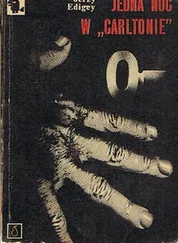“When I found out that you were coming to K., I decided to have a drink with you and tell you the story that torments me. I decided that I would tell you a story that I am able to tell, but which I am unable to write down. It’s a love story. It’s easy to guess that I felt the lack of a sensual aspect in my works especially acutely when an emotional plot turn occurred in my own life.
“I fell in love. I fell in love with a student. I fell in love with a woman more than forty years my junior. With a woman, not a child. With a woman, not a girl. Anyway, her womanliness manifested itself rather occasionally and rather sporadically. The charm of changeability. Thanks to this charm, gray mice sometimes win the competition with out-and-out beauties. The out-and-out beauty is once-and-for-all and unchangeably out-and-out beautiful, and that’s that. Zero changeability and zero surprises. But the gray mouse, for whom you wouldn’t give five cents, all of a sudden — it sometimes happens — somehow magically rearranges her hair; the blouse on her flat chest opens mysteriously, although deceptively; her eye sparkles; a ray of light falls on her asymmetrical face — and there you see it: the mouse is transformed into the Miss! The potato-eater into the angel! Grayness becomes light!
“The virtues of my angel were basically exhausted with this sort of sporadic charm. To be perfectly clear: I sing the song of a very unremarkable person. This, in fact, was to be my doom. When an unremarkable person comes to be considered remarkable, it usually ends badly. Precisely this course of events occurred. First, she was a normal woman of unremarkable looks and average intelligence, but then — God knows who. Most certainly a fallen woman with a bird’s brain and the looks of a whore. And even that isn’t certain. In other words, it is even worse, because wandering about the cracks of existence is worse than whorishness. She’s gone. It was the art of today, miserable and devoid of values, that destroyed her. It was aspiring to superiority, the appearance of which is given by the cultivation of art, that depraved her and cast her out of life. And it was the devil himself, who — having taken on the form of a film star who was known as a ladies man and had come to our parts — pushed her to this. He spent a night here. In the hotel At the Sign of the Falcon . I don’t know whether it was precisely this room. Probably not. He didn’t commit suicide. But he didn’t live all that long afterward. No, I didn’t kill him. I wished him nothing but the worst — death, too — but I didn’t kill him. He died in an accident. You can’t even speculate that I caused the accident through my obsessive thoughts. My thoughts were highly intense in their obsessiveness, but they didn’t have any force, because they were mainly drunk. What are you doing? — I think. — He destroyed her life. He plunged her into the abyss of superiority. He seduced her with the mirages of alleged triumphs. He made her giddy, without even seducing her. Which is basically all the worse.
“Let’s say her name was Wiktoria. It is only for the sake of appearances that I change her name, since the story is, to this day, discussed over and over and from every angle in K., and tomorrow morning, as soon as you exit the hotel, the first chance passerby will tell you who she was. Actually, you don’t even have to go out. Emil will also be happy to reveal to you who the prototype for Wiktoria is. She was the daughter of the curator of the Lutheran church. Our parts — as you well know — abound in daughters of curators, daughters of pastors, daughters of presbyters, or daughters of organists. In spite of the indisputable sexiness of such descriptions, none of them ever came into question for me. Nor did Wiktoria — until a certain balmy September day — come into question. Never did any of my female students come into question. Absolutely not! Not even the hint of a thought. For an old teacher, who never thinks about women, thinking about female students as women was beyond all categories and didn’t come into question a thousand times over. The dark side of the moon. The light of a star that would arrive on Earth in a million light years. Above all, my female students had no bodies. They were composed of navy blue skirts, white blouses, and sailor collars. Their heads contained, at best, superficial summaries of readings, badly memorized verses, and paltry essays. At best, because, on the whole, they didn’t contain anything. And after the holidays, their skulls, light as dandelion fluff, had been absolutely swept clean of any sort of material. You could recognize this by their suntans and bovine bliss. On their faces, my dear sir, an even Balkan suntan, in their eyes, bovine bliss, and in their heads, a complete void. I know that I express myself like an old and grumpy pedant. Unfortunately, the continuation of this story will require much worse expressions. I will tell the beginning of the story in high pedant style. And the crux of the beginning, to which I am now passing, occurred right after the holidays.
“One fine September day, I called upon her to answer. O doom! O fate! O bloodied arrowhead! Yes, sir! One fine September day, a student, a third-year lyceum student, composed of a dark skirt, white blouse, and sailor collar, with the first name, let’s say, Wiktoria, and the surname, let’s say, Złotnica, stood at the blackboard and — not a peep. I ask about the greats — nothing. I ask about Mickiewicz — nothing. I ask about Gombrowicz — nothing. I ask about Sienkiewicz — nothing. I ask about whatever — nothing. What did you read during your vaction? Nothing. Where were you during the vacation? In the mountains. What mountains? In our mountains. In Wisła. And you didn’t read anything in that Wisła? Nothing during the entire vacation? Nothing. Well, yes — I say with the studied venom that my students, especially the boys, adore — you, Złotnica, ought not go to the mountains, but rather to the sea. That’s what I’d advise you to do. At the seaside, at least there is iodine. In the mountains, even in our mountains, and maybe especially in our mountains, there is no iodine. And the lack of iodine, plus Lutheranism, produces — as it turns out — pitiful intellectual results. At least in your case — I enunciate clearly and slowly — at least in your case, Złotnica.
“The class, of course, howls with laughter. I cast my victorious glance over the laughing faces, I turn my face toward her in order to wrap up and conclude the matter with a final grimace full of pity, and suddenly I see a miracle taking place before my very eyes. Suddenly I am witness to a most genuine, biblical miracle. Suddenly I see how the word — forget the word! — suddenly I see how the lack of the word — for, after all, she wasn’t able to stammer out a single word — and so, suddenly I see how the lack of the word becomes flesh! Suddenly I see how ignorance becomes flesh! First — from her head, through the collar, blouse, skirt, down to her very feet — there runs a most distinct shiver. It is as if a delicate lightning bolt had pierced her, and immediately thereafter the void was filled. Suddenly I see how a delicate neck, the most delicate in the world, just now created, emerges from a sailor collar. Suddenly there appears from under the sailor collar the outline of collarbones just a moment before shaped from clay. And the thin shoulders begin to support the white blouse, and the frail outline of a bust takes form before my eyes, and the daringly projected construction of hips becomes noticeable under the dark skirt, and even the shoes with flat heels are suddenly filled with feet, and all of this takes place quite literally before my very eyes.
“‘Professor,’ says the body created only the moment before, and shivers, as if it had experienced the cold of the earth’s atmosphere for the first time, ‘Professor, I did, indeed, read a few books, but none of these books was a book by Stefan Żeromski, so, in the professor’s opinion, it is as if I didn’t read a single book.’
Читать дальше












